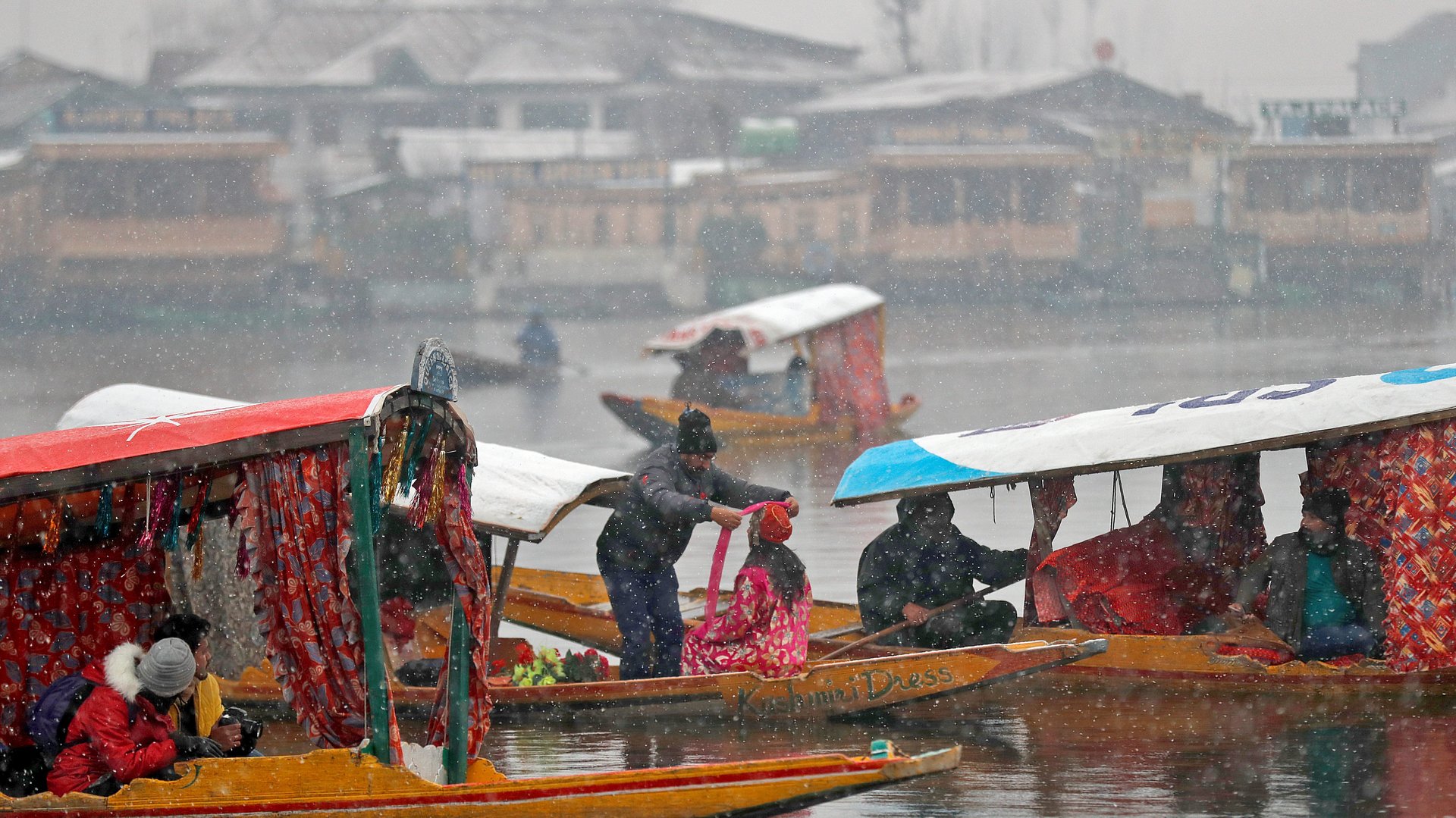US lowers India on covid threat but warns against crime and terrorism
The US wants its citizens to be cautious about travelling to India—not because of covid but crimes.


The US wants its citizens to be cautious about travelling to India—not because of covid but crimes.
The country yesterday (March 28) eased its covid travel advisory for India to a low level-1. “Your risk of contracting covid-19 and developing severe symptoms may be lower if you are fully vaccinated with an FDA authorised vaccine,” said the centres for disease control and prevention (CDC).
On the same day, authorities there also updated a November 2021 circular reminding citizens to “exercise increased caution” during travel because of crime and terrorism in the country.
Chaos in Jammu and Kashmir
The CDC explicitly warned US citizens against travelling to the union territory of Jammu and Kashmir—except the eastern Ladakh region and its capital, Leh—due to terrorism and civil unrest. In 2020, the so-called “heaven on earth” accounted for 38% of all terror attacks in India.
Ironically, this notification came on the very day the state’s tourism secretary Sarmad Hafeez heralded the return of routine international air travel to the region.
Citing potential conflict, the federal agency also prohibited travel within 10 kilometres of the India-Pakistan border. The only official India-Pakistan border crossing point is in the state of Punjab, between Atari in India and Wagah in Pakistan.
Extremism and terrorism across India
US nationals have also been asked to steer clear of the “seven sisters” states in the northeast, an area that has reported ethnic violence, including bombings. Other areas marked as risky by the CDC are rural Chhattisgarh and Jharkhand, the border areas of Telangana, Andhra Pradesh, Maharashtra, Madhya Pradesh, Uttar Pradesh, Bihar, West Bengal, and Odisha. This is due to the reported presence of Maoist operatives in these areas.
If US citizens find themselves in trouble in these regions, US authorities will have a tough time lending a helping hand. US government employees are prohibited from venturing into these areas without special authorisation.
“Terrorists may attack with little or no warning, targeting tourist locations, transportation hubs, markets/shopping malls, and government facilities,” the US authorities warned broadly.
Rising number of rape cases
From all-women police stations to panic buttons, India has seen a lot of lip service being paid to fighting rape. But the number of cases keeps rising. Despite loud protests, the country’s deeply flawed law-and-order system has failed to ensure conviction and adequate punishment.
“Indian authorities report rape is one of the fastest-growing crimes in India,” the CDC warned. “Violent crime, such as sexual assault, has occurred at tourist sites and in other locations.”